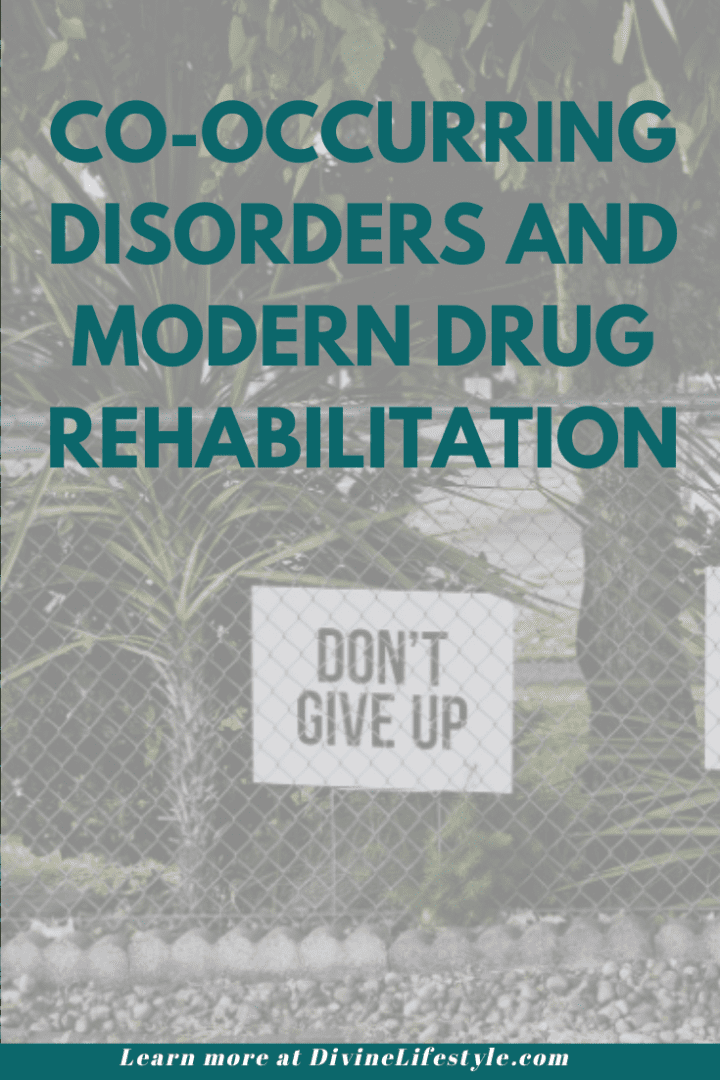How to Relax and Enjoy ‘Me Time’
How to Relax and Enjoy ‘Me Time' This post has been sponsored by Nonni’s. I received product and compensation, but all opinions are my own. I spend a lot of time at home with...
Do you know someone who is dealing with co-occurring disorders? If the answer is yes, you can bear witness that it's daunting to deal with two conditions concurrently. Co-occurring disorders, or dual diagnosis, are when someone has both substance abuse and mental health issues such as anxiety, depression, and bipolar issues. We hope that you find this Co-Occurring Disorders and Modern Drug Rehabilitation post useful. 
In a dual diagnosis, both substance abuse and mental health disorders showcase their symptoms that may affect the victim's quality of life. To worsen the situation, the two disorders also affect each other. When a mental health issue such as alcoholism is not attended to on time, it leads to increased substance abuse. And when drug addiction increases, the mental health issue deteriorates.
It is tough to identify a dual diagnosis. It takes time to differentiate the symptoms arising from mental issues from those of drug and substance abuse. Here are warning signs that you may be suffering from a dual diagnosis.
Therapists say that dealing with co-occurring disorders is quite difficult because of denial. Numerous patients will not admit that they are addicted to certain drugs. Patients experiencing dual diagnosis may be afraid or ashamed to speak out not to be viewed as weak.
Suppose you know someone battling mental health issues and drug abuse, it's prudent to encourage them to seek help. Anyone can be affected, and it doesn't necessarily mean you are weak because you can't face unpleasant situations when sober.
 Are There New Trends in Inpatient Rehab Programs?
Are There New Trends in Inpatient Rehab Programs?Technological advancement is transforming treatment methods, including inpatient rehabilitative care. In the past years, several advances such as suboxone for opiate addiction have taken place. The mental health fraternity is always looking for newer, better ways to deal with addiction and improve overall well-being.
Although people take it lightly, doing some alterations here and there in your life is a critical way of dealing with substance and drug abuse. Highly experienced addiction therapists, such as those found at this licensed residential rehab facility, will encourage people to live positively by eliminating negative thought patterns and replacing negative habits with healthier ones. By removing such barriers, a patient can control drug cravings and prevent relapse. A significant number of people who have engaged in lifestyle change programs have reported improvements in mental health and more success in resisting drug culture.
How Can the Scientific Community Prevent Costly Failures in Drug Discovery
One of the key trends to pay attention to is the utilization of Eastern medicine in rehabilitative care. Ancient practices are being revived to treat detox and withdrawal. Numerous rehab centers are now utilizing herbs and teas that are functional in flushing drug toxins out of the body.
One of the surprising trends in rehabilitation programs is finding the cause of the problem. Besides dealing with addiction symptoms, therapists are showing increasing concern in locating the cause of the addiction. Once the cause of the addiction is identified and treated, therapists are confident that the problem is addressed extensively.
Holistic medicine is sneaking into several areas of medicine and science. Several bodies such as the National Institute on Drug Abuse, the National Library of Medicine, and the National Institute on Alcoholism and Alcohol Abuse are finding the connection between mental health, physical, and addiction. Addiction can be addressed through wellness therapy, exercise programs, dietary therapies, and other programs that can elevate a patient's total wellness.
Renowned rehab centers are now offering inpatient aftercare. In the past, patients were left on their own after being released from a rehab center. The approach was found to contribute to high relapse rates in patients. The aftercare programs consist of regular counseling sessions to evaluate the progress of a patient. Since rehab centers started employing aftercare, the success rate of rehab programs has gone high as well as reduced relapse rates.
We hope that you have found this Co-Occurring Disorders and Modern Drug Rehabilitation post useful.
Why am I Always Tense? Social Anxiety vs Generalized Anxiety
Comments are closed.
Pingback: 6 Tips for Parents Struggling with Depression Divine Lifestyle